REBNY 2019: Revolution Is in the Air
A look at the honorees at the real estate industry body's 123rd annual banquet
By The Editors January 15, 2019 9:00 am
reprints
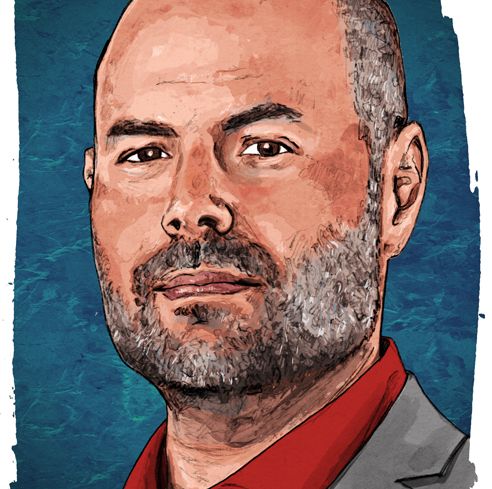
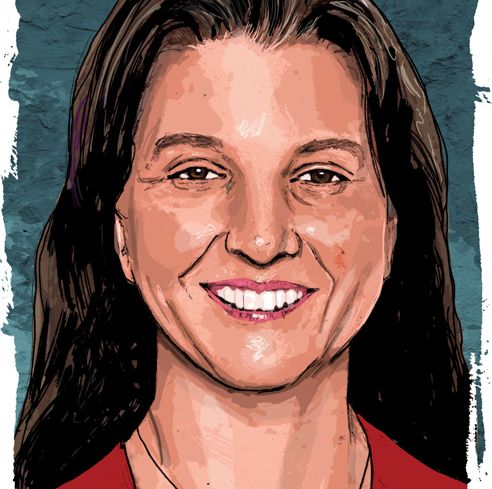
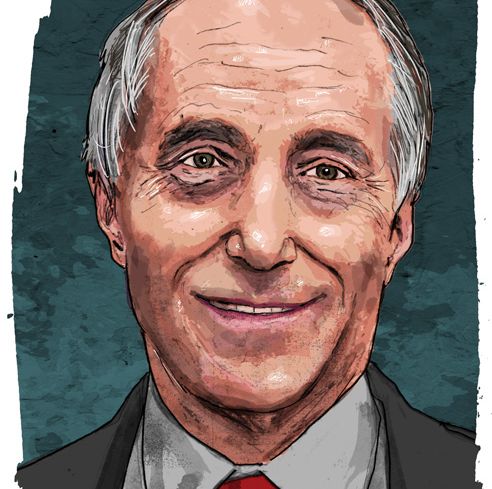
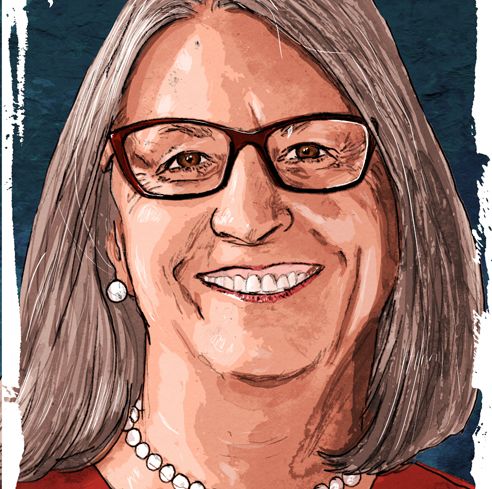
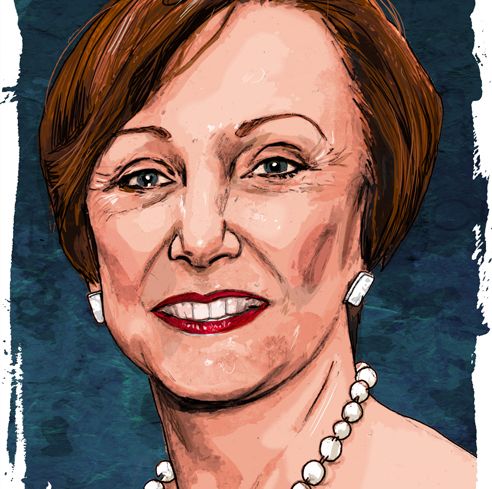

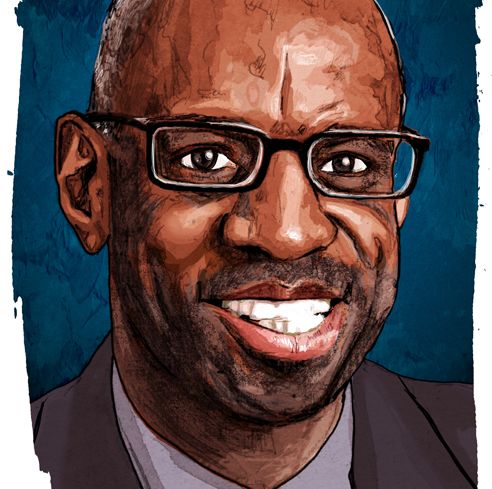
The Real Estate Board of New York was formed 123 years ago, which means they’ve been around long enough that they should be able to sense when revolution is in the air.
Last November, there was a serious political revolution throughout the country—and the effects reverberated in Albany. For only the second time in more than a half century, Democrats took over the New York State Senate. And it was not a wishy-washy, split-the-difference Democratic class: Landlord-friendly members of the Independent Democratic Conference were replaced by advocates of items like Universal Rent Control.
How REBNY faces this new Albany is what Rebecca Baird-Remba wrote about in her articles on the lobby’s drift to left on some progressive issues, and the rent-regulation brawls that will likely take place in the near future.
One shouldn’t dismiss 2018 as anything other than a very good year when it came to many REBNY priorities. In November the city scored what was viewed by many as a massive win when Amazon made Long Island City the home to its secondary headquarters; something REBNY was thrilled about. But after the big fish landed, a number of progressive state senators and assemblymen began rethinking the proposition. Nicholas Rizzi wrote about the backlash. There were other, less disputed, wins for REBNY, like the rezoning of the Garment District, which Benjamin Frachtenberg wrote about.
One of the most progressive items in REBNY’s 2019 agenda has been congestion pricing, which Aaron Short wrote about and increasing minority and female representation in the industry, which Chava Gourarie covered.
An important part of our REBNY coverage is looking at the lobby itself. REBNY President John Banks gave an interview to Nicholas Rizzi. We wrote about honorees Alex Bernstein, Helena Durst, Ira Fishman, Carol Kellermann, Diane Ramirez, Daniel Tishman and Bernard Warren. Larry Getlen interviewed the organization’s new data mavens, Paimaan Lodhi and Reggie Thomas. Lauren Elkies Schram looked at the spat within the lobby between residential brokers and commercial ones. And Alison Rogers looked at Bill Rudin’s first year as REBNY chairman.—Max Gross
Alex Bernstein
Executive Vice President and New Business director, Bernstein Real EstateThe Young Real Estate Professional of the Year Award
For Alex Bernstein, winning the Young Real Estate Professional of the Year Award fulfills a legacy. His father Asher, his company’s chairman and the second of four generations of Bernsteins who’ve worked at the firm, won this same award in 1983. Vincent Terranova, the firm’s current president, also won the award, in 2006.
For Bernstein, then, the designation carries the pride of history.
“I’m very proud of winning this award,” Bernstein said. “It’s a family affair, unexpected but delightful.”
This could also describe his real estate career itself. Despite his family legacy, the 46-year-old Bernstein, who spent his summer breaks from college working on construction crews for the company’s buildings, was determined to make it on his own. Rather than join Bernstein Real Estate after college, he initially worked for other firms.
“I started in real estate in 1994 or 1995 as a retail broker for CB Richard Ellis in Charlotte, N.C.,” he said. “I covered a lot of the Carolinas market doing tenant and landlord rep.”
Bernstein got into development there and eventually moved to New York to get an MBA from Columbia University, which he obtained in 2000. Coming to believe that his entrepreneurial bent would work best at his family’s firm, he joined Bernstein Real Estate in 2001.
At Bernstein Real Estate, Bernstein oversees all operational aspects of the company’s 2-million-square-foot portfolio, and identifies new investment opportunities.
He is currently leading the development of a passive house—a building that traps and stores heat in the summer and cold in the winter for the home’s energy needs—at 211 West 29th Street, which will be the tallest residential building of its kind in Manhattan.
According to Bernstein, a passive house can permanently reduce a building’s heat and electricity needs by up to 70 percent.
“We’re building an affordable, 65,000-square-foot, 55-unit passive house with about 30 percent affordable housing. We are coming to market at the end of second-quarter 2019,” he said.
Bernstein added: “ ‘Passive house’ is a German [and] U.S. designation. There are about two dozen of these buildings in the city, and ours will be the tallest residential rental in Manhattan, though probably not for long.”
When not immersed in real estate, Bernstein, who lives near Union Square with his wife, Pam, and their three children, two girls and a boy ages 5, 7 and 9, respectively, enjoys a slew of activities from softball, soccer and skiing to biking around the city.
Moving forward, Bernstein hopes to replicate the passive house design throughout New York, creating environmentally sound buildings that will mark a strong step forward in the city’s real estate.
“Passive house technology is on everyone’s minds, but no one really pulled the trigger yet, and we’re one of the first to do that,” he said. “We’re proud of being leaders for our neighborhood, for our city and for the globe, in doing something that’s right—something that’s going to be good for our environment.”—Larry Getlen
Helena Durst
Principal, The Durst Organization The Kenneth R. Gerrety Humanitarian Award
When Helena Durst started as an intern at her family firm 17 years ago, she was handed the Herculean task of cataloging her late grandfather’s extensive library.
“He had a large library of about 10,000 books and 10,000 postcards—a five-story brownstone filled with New York City memorabilia,” she said. “After he passed away, his collection needed to be indexed.”
This massive job showcased some serious organizational skills that came in handy when she began learning the business under the company’s head of commercial brokerage, Thomas Bow.
“I was doing tours and cold calls, started working on leasing and eventually began negotiating my own leases,” she recalled. “I became more interested in the operation of buildings, and toured with the night staff.”
Durst, 41, came to oversee all aspects of the company’s residential portfolio including leasing, management, operations and marketing. Her interest was especially piqued by the operations of the New York Water Taxi, which she began working on with her cousin, David Neil. She took over as co-president with Neil in 2010.
“Most mass transit companies are subsidized by the government,” Durst said. “We weren’t receiving enough subsidy, so it was at a negative operating income. We turned it around to have a million dollars or two of operating profit.”
She continued: “We focused on tourism, recreational ridership and exclusive contracts. The New York City boating industry and ferries are very dependent on tourism and the Statue of Liberty. We created better marketing including a better website, focused on those revenue paths and creating more exclusive contracts with [New York University], continued our relationship with Ikea [Ikea and NYU have their own ferries], and ensured we were running as efficiently as possible. We…were finally able to sell it in 2016, and shared the profits with the employees.”
At The Durst Organization, Durst guided the creation of the 57 West superblock, including high-end residential towers Via, Frank and Helena. She is currently overseeing construction of the seven-building Halletts Point project in Astoria, Queens, and Queens Plaza Park in Long Island City, which will offer 958 apartments, almost 300 of which will be affordable.
Given her family’s extensive real estate background, it’s a special honor for Durst to receive this award from REBNY.
“My family has been involved with REBNY for over 50 years,” she said. “To be recognized with the humanitarian award means a lot to us, because it shows how important our family values are, which very much means treating people as you’d want to be treated.”
On this note, Durst has given generously of her time for the industry. In addition to sitting on REBNY’s Board of Governors, she serves on the Manhattan Solid Waste Advisory Board (a volunteer advisory board to the city) is chair of the Lower East Side Ecology Center, and is a member of the New York Restoration Project and the Lincoln Center Real Estate Advisory Board.
For all these reasons, Durst, who enjoys taking short hikes with her two sons, ages 3 and 6, when not hard at work, could hardly be prouder to accept this award from REBNY.
“REBNY is important to me because it represents the fabric of the real estate industry,” she said. “REBNY is as diverse as the industry can be.”—L.G.
Ira Fishman
Partner, HSP Real Estate Group The Louis Smadbeck Memorial Broker Recognition Award
The Louis Smadbeck Memorial Broker Recognition Award goes to “a commercial broker with exceptional personal and professional integrity, leadership, prominence in the brokerage community and service to [the Real Estate Board of New York’s] committees.”
With 44 years in New York City’s commercial real estate industry, Ira Fishman, 68, has demonstrated these values and more.
Fishman spent 26 years at Newmark & Co.—which was owned by his uncle, the late Aaron Gural, who won the same award in 1999—eventually acting as leasing and managing agent for nine commercial buildings with over 3.5 million square feet. Starting at the company in June 1972 as a rent collector and a leasing broker, he evolved to partner.
He left the company in 1998 to join Winoker Realty as a partner, and he and his daughter, Dana Moskowitz, 37, bought the company with two others in 2013, rebranding it EVO Real Estate Group. In November 2017, EVO merged with Herald Square Properties to form HSP Real Estate Group, where Fishman and Moskowitz are both partners.
Fishman, 68, takes pride in his career progression, noting that even after transitioning to development—he currently has around 20 commercial and multifamily New York City buildings in his personal portfolio—it took some time to transition out of the broker mentality.
“Making the transition from a broker to an owner was a major accomplishment that happened over 30 years,” he said. “The full transformation happened about 10 to 12 years ago. I bought a building with my partners, and saw our banker at a Christmas party. The banker introduces us to someone, and the man asks me, ‘What do you do?’ I say, ‘I’m a real estate broker,’ and before I can get the word ‘broker’ out, the banker says, ‘No he’s not. He’s a developer.’ That was when I made the transition—when the banker recognized me as a developer and not a broker.”
Asked about the most significant transaction of his career, Fishman pointed to a deal he made with his uncle in the late 1980s.
“I rented 100,000 square feet to Cox & Company at 200 Varick Street and bought the building at same time,” he said. “I was showing space there, and the owner told me he was thinking of retiring. I said, we’ll buy the building, and I rented the space to the tenant and we bought the building all in a simultaneous transaction.”
Fishman’s real estate involvement doesn’t stop at the door of his firm. He serves as chair of REBNY’s Midtown South Office Committee, and also sits on the Boards of Directors for REBNY’s Commercial Brokerage Division and the Garment Center Alliance.
A Jets season-ticket holder who lives in Port Washington, N.Y., with his wife of 42 years, Carol—in addition to Moskowitz, the couple has a son, Michael, 30, who works in the industry but not for HSP—Fishman said that whatever his accomplishments, his greatest pride about his life in real estate comes from the relationships he’s formed along the way.
“My best friends today are people I’ve met in real estate,” he said. “People from high school and college went different ways, but I’ve maintained relationships with real estate people I met in my early 20s.”—L.G.
Carol Kellermann
Former President, Citizens Budget Commission John E. Zuccotti Public Service Award
After a decade at the helm of nonprofit political watchdog group Citizens Budget Commission, Carol Kellermann stepped down last month from her role as the president of the organization. As she considers her next move, the Real Estate Board of New York has decided to recognize her quarter century of service in the nonprofit and political spheres by giving her the John E. Zuccotti Public Service Award.
“I guess what this award means is I get to sit in a better seat on the dais [at the REBNY gala],” she joked. “It’s a great honor, especially given the people who have won the award before me, who are both dear friends of mine and very impressive civic leaders.”
The 67-year-old Long Island, N.Y. native started as the head of CBC in July 2008. In her 10-plus years running the group, CBC became an invaluable resource on government spending for journalists, activists and politicians. It published extensive reports on a broad range of fiscal policy issues, including the state Medicaid program, property taxes, the New York City Housing Authority, the subway and the Amazon campus deal in Long Island City, Queens.
Before CBC, Kellermann spent three decades running educational nonprofits and working as a political staffer and lawyer. After earning undergraduate and law degrees at Harvard University, she did a brief stint in the litigation department at Weil, Gotshal and Manges and then spent two years as a staff attorney at the Legal Aid Society. She also worked on Chuck Schumer’s staff after he was elected to the House of Representatives in 1981, and she returned to become his chief of staff in 1990.
During the intervening years, Kellermann held various jobs in city government, becoming an adviser to the mayor’s task force on homelessness and a deputy commissioner for the city’s finance department. She later spent five years as a political consultant and principal in John Podesta’s lobbying firm, Podesta Group.
Since the late 1990s, Kellermann has managed a variety of nonprofits. She oversaw the September 11th Fund, which dispenses money to survivors of the 2001 terrorist attack, a parent volunteer program for New York City schools called Learning Leaders, and the Scholastic Arts & Writing Awards, which provides prizes and scholarships to teenage visual artists and writers.
At the beginning of January, former hospital executive Andrew Rein replaced Kellermann as CBC’s president. She said that after a decade, the organization needed some new blood.
“I always say that no one should be the CEO of a nonprofit for more than 10 years,” she said. “Because it’s very important to be a change agent. After 10 years, it’s hard to be a change agent because everything about the organization has your stamp on it. It’s a question of practicing what I preach.”—Rebecca Baird-Remba
Diane Ramirez
Chairman and CEO, Halstead Real Estate The Bernard H. Mendik Lifetime Leadership in Real Estate Award
Calling herself “an early adapter,” Diane Ramirez joined the Real Estate Board of New York in 1977 when she obtained her real estate license. She said she realized the importance of being affiliated with the industry’s trade organization.
Though she’s been out of the residential real estate dealmaking business since the 1980s, Ramirez has kept busy growing one of the city’s top residential brokerages, Halstead Real Estate, from an organization of two—when she and Clark Halstead co-founded Halstead—to 38 offices in three states with 1,400 agents. That growth has included helping steward the firm to its purchase by Terra Holdings in 2001.
The vision at the company’s inception, her web bio says, was for “a high-end firm that utilized advanced technology combined with old-fashioned elegance that covered all segments of the market and was located in the communities that they serviced.”
That still holds true.
While her agents “serve the entire marketplace,” the Halstead chairman and CEO noted, “I guess our sweet spot is probably the luxury market, but not the uber-luxury.”
Ramirez, 71, is the recipient of The Bernard H. Mendik Lifetime Leadership in Real Estate Award “for her exceptional accomplishments in the profession, leadership and service to the real estate industry over the course of her career,” according to REBNY.
When asked why she thought she was being given the award, she said humbly: “Maybe it’s because of my ongoing involvement and dedication to REBNY.”
Since the trade organization created a residential brokerage division in 1994, “there [was] never a time when I didn’t volunteer for something.” She is co-chair of the Board of Directors for the residential brokerage division and is on REBNY’s Board of Governors and Executive Committee.
The Upper East Side resident has been an advocate for residential agents, providing training and technology so her agents are as sophisticated as the company that holds their license.
“We train our agents to be very professional,” Ramirez said. “That’s very important to us. We probably have one of the best in-house trainings in the office at all levels.” On the tech side, she said, Halstead has “always been very technology-forward.” The firm has twice been recognized as the most innovative brokerage by Leading Real Estate Companies of the World, a global invitation-only referral network of over 500 residential real estate brokerages. Starting this year, Ramirez is the chair of the network after a three-year run on its board. Ramirez, an accredited continuing education teacher for the state, was appointed in 2010 by the governor to the board of the New York State Department of State, the agency that regulates real estate licenses in the state. It is a position she still holds.
“We put together recommendations and then present them to the governor,” Ramirez explained. That has included being “very active” in helping with the current advertising regulations, which govern how agents can advertise online, how they reference their brokerage firms and what they call their teams.
It’s running Halstead, though, that most excites Ramirez because she is “at the helm of this company that I love so much with leadership that is the best by far in our region and [we] continue to excel.”—Lauren Elkies Schram
Daniel Tishman
Principal and Vice Chairman, Tishman Harry B. Helmsley Distinguished New Yorker Award
Daniel Tishman had one thought when he found out he would receive the Harry B. Helmsley Distinguished New Yorker Award at the annual Real Estate Board of New York gala: “Boy am I glad I don’t have to fill the room because it fills itself.”
Unlike other awards, where they only give it to you so you can help sell tables, REBNY means more because it’s given out based on your work, Tishman said.
The Harry Helmsley award is given to those who have made contributions to the city’s welfare and Tishman, the principal owner and vice chairman of Tishman, will join the likes of Stephen Ross, Larry Silverstein and Jerry Speyer in being honored with the title.
“It’s one of the highest of the awards they give out while you are alive and I’m extraordinarily happy that the real estate board will honor me,” Tishman said.
Tishman, 63, is the third generation to lead Tishman since it was founded by his great-grandfather, Julius Tishman, soon after he immigrated to New York from Poland in 1895. The company, minus the construction arm that Tishman sold to AECOM in 2010, has had a hand in building nearly every major project around the city including both World Trade Centers, the Barclays Center and currently Hudson Yards.
“I’m very lucky to be able to drive around the city and see where our family has had a major impact to the skyline of New York,” said Tishman, who serves on the board of directors for AECOM.
Tishman got his bachelor’s of science in ecology and planning from Evergreen State College, a master’s in environmental studies from Lesley College and is known as one of the pioneers of the green building movement.
He’s been a member of REBNY’s board of governors and executive committee for years where he tries to “bridge the gap” between people in the development and construction communities, he said.
Aside from all of the major projects under his belt, Tishman said his work with city leaders (on REBNY’s behalf) to try to streamline processes and make the city a faster place to get projects done is one of the main reasons he’s being honored at the gala.
One big win for that effort came during the Giuliani administration when an understaffed New York City Department of Buildings took forever to approve permits, grinding to a halt many projects waiting to be built.
“It was months upon months you had to submit before you could get your permits out,” he said. “It was stifling a lot of the building activity in the city.”
One of the things Tishman and his REBNY counterparts noticed was that all the money the DOB generated from permit applications was going to the general city fund instead of the agency itself. So Tishman helped convince city government to put the money back into the DOB and hire more workers to approve permits.
Aside from his work with REBNY, Tishman also headed up a panel convened by Gov. Andrew Cuomo to develop a master plan to redevelop the city’s aging John F. Kennedy and LaGuardia Airports, the latter which has been likened to a “third-world country” by former Vice President Joe Biden.
“It’s not been easy to rebuild one of the busiest airports in the United States,” Tishman said. “When it’s done people are going to look back and say that was pretty remarkable.”—Nicholas Rizzi
Bernard Warren
Chairman and President, Webb & Brooker George M. Brooker Management Executive of the Year Award
While any award from the Real Estate Board of New York would be special for Webb & Brooker President Bernard Warren, receiving the George M. Brooker Management Executive of the Year Award carries a special gravitas.
“George was one of the founders of this company. He’s the guy that ran our management division,” Warren said. “For me to get an award named for a guy I looked up to is significant to me. It’s a great honor in itself, but it’s even greater for being named after him.”
Warren began his real estate career in 1985 as an independent investor, buying rooming houses in Queens and Harlem with several partners. He put the knowledge and experience he gained there to use at Webb & Brooker starting in 1990, when he joined the company as a site manager.
“We’re primarily managers of affordable housing,” he said. “Back then, it was all Section 8. I came in as a manager; my first buildings were on 110th Street and Fifth Avenue.”
Warren rose through the ranks, becoming director of operations for the company’s management division around 1995. He was promoted to partner in 1997, and became the company’s chairman and president in 2012.
Asked about a project he was particularly proud of, he mentioned the redevelopment of 480 St. Nicholas Avenue in Harlem in 2006.
“That’s a Section 8 building we’ve managed since the late 1970s or early 1980s,” he said.
He added: “When [the U.S. Department of Housing and Urban Development] changed policies regarding how it funds buildings, we were able to bring tax credit money to the building. We financed the building and did reconstruction—a $28 million project.”
Looking ahead, Warren is currently working on four projects in Jamaica, Queens. He can’t disclose addresses yet, but he filled Commercial Observer in on what he can share.
“One project is about 300 units, and it’ll be half seniors and half families,” he said. “We have two smaller ones, about 85 units [each], not far from Jamaica Avenue. We’re working with two nonprofits for affordable housing. I have one church in Brooklyn that [will be converted to] 30 units. That should come to fruition in 2019, and should help with affordable housing.”
For Warren, 60, who lives in Queens with his wife, working at Webb & Brooker is about much more than just business.
“I was born in Harlem and raised in South Jamaica, Queens, so for me this all serves a purpose,” he said.
When not hard at work helping create more affordable housing through Webb & Brooker, Warren serves on the REBNY Board of Governors and as a co-chair of the REBNY Diversity Committee. He also serves as vice president on the board of managers for the Jamaica YMCA.
“I believe that doing good and making money are not mutually exclusive,” Warren said. “Coming to Webb & Brooker and doing this type of housing fits how I see the world. I’m a for-profit business guy, but I understand there’s a happy medium. I’m very proud to come here every day not only as the president of a company, but a company that’s always been about a phrase I learned from the principals, ‘democracy in housing.’ ”—L.G.



